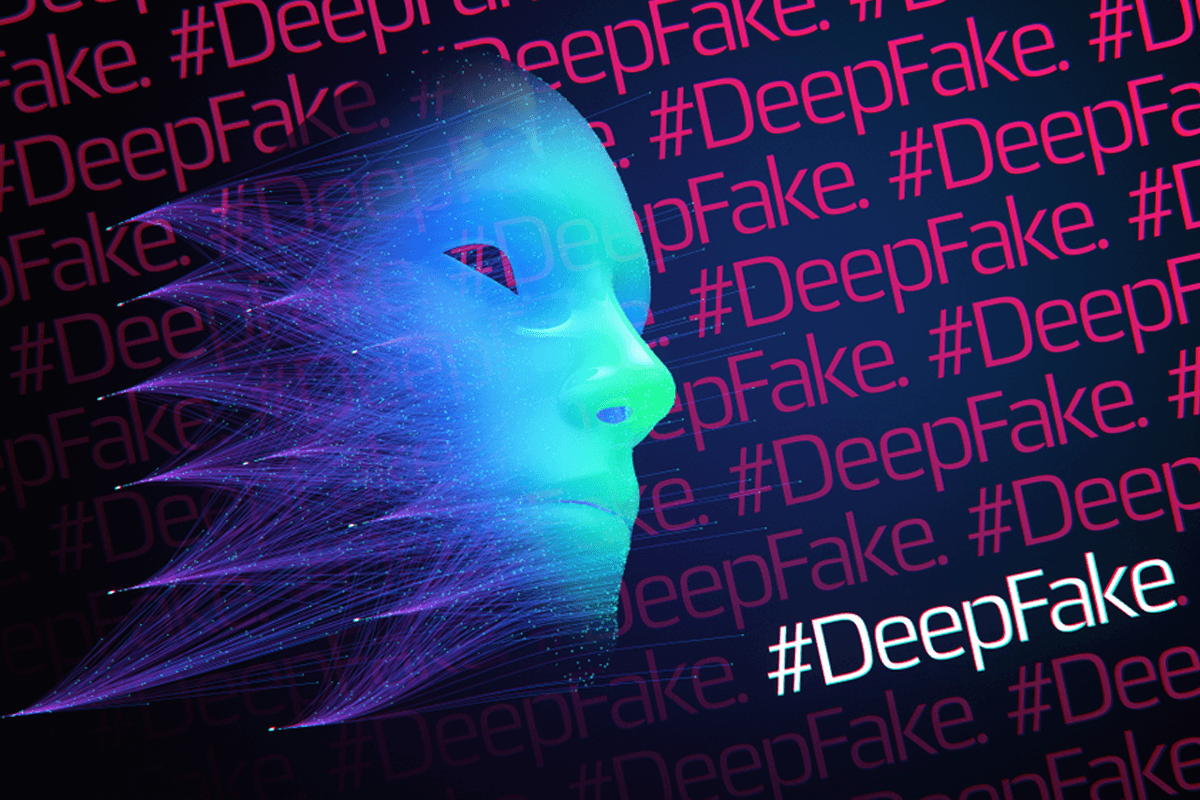No hoax behind it! No spoofing either! It is Deep Fake that could ruin your reputation, if not your business.
If you are in any way active on social media, you may have heard about it. It is the latest trend of technology buzzing around media channels for a while now.
While it may seem like nothing big to get your attention and you will probably call this normal, there is a lot more to it than meets the eye. The rapid growth of Artificial Intelligence (AI) is causing a lot of stir in almost every domain. Due to its heightened capabilities to aid our current technologies, AI also presents a major security threat to human safety. Deep Fakes are one such threat.
These computer-generated audio and video have made possible the manipulation of any speech or image. It gained publicity in 2017 when a Reddit user posted sexually explicit content compromising the identity of celebrities.
It is a machine learning algorithm that utilizes artificial intelligence to create realistic generative models that are manipulated to change an image or video of a person into a doctored one.
These videos have a convincing level of realism. They are all variations of an AI technology called generative adversarial network (GAN). GAN is based on two neural networks: one generates the video content while another evaluates its authenticity. It enables anyone to record or shoot anything and manipulate it into an image or video in such a way that it can seem as if it has been recorded by someone else altogether. Thus, a fake clip could make it much easier to spread chaos by disseminating false and misleading information in the name of the others their acts, speech and real life behaviours
Deep Fakes are despised globally for being an invasion of privacy and a potentially dangerous tool in the hands of those who wish to harass or impersonate people and raise fundamental questions of what we agree to when we upload intimate images of ourselves and allow these to live on the internet forever.
These applications are available open-source and can be easily downloaded and implemented by anyone.
Deep Fake videos have managed to attract attention in the cyber realm as well as people are trying hard to find their genuine usage. Also, you will be able to come across various instances of deep fake videos which are available on the internet. These incidents have brought serious sparks among the leaders and public personalities. Several issues have also been raised related to privacy concerns.
In 2019, the news regarding the “deep fake” was trending on mainstream media. A deep fake video of Facebook CEO Mark Zuckerberg already drew its fury from important personalities. The science behind it is not new, as people are aware of its existence. But this time, a deep fake video of Zuckerberg was so obvious that it could make people believe that his words came straight out of his mouth.
This technology has also been used for cyber-attacks targeting financial systems of various organizations using audio and video tracks and even broadcasting them through email phishing attacks.[1]
By impersonating business executives, third-parties, and using social engineering attacks, scammers have gained a profit of $1.8 million by compromising the email architecture of businesses. This ‘deep learning face-swapping technology’ will damage the internet more than any other application in future because its use has no boundaries or geography restrictions. Cybersecurity experts already have warned world leaders to take serious precautions using an automated Zero Trust Approach against this technology before it exploits and cause harm to rational people around the globe.
It is not a new thing to manipulate reality, even if it is to hide the truth. People have been doing this for ages, but it is now growing at an unrelentingly fast rate, thanks to improved editing tools and artificial intelligence.
For the sake of fun, jokes, pranks, or even more malignant reasons like financial/ identity fraud, blackmailing, etc, this technology has hindered the originality of Indian Election Campaigns, Disney graphics and smeared the reputation of famous personalities like Jeff Bezos, Jay-Z, Tom Hanks, Former U.S President Donald Trump, Belgium’s Prime Minister, and many more. [2]
It has now become one of the best ways to cause havoc in the cyber realm that could destroy the reputation of individuals and businesses alike. It is a common saying that “seeing is believing” but with the availability of deep-fake technology, it may be easier said than done.
While AI was curated to create worlds out of imagination and bring characters to life in Hollywood films, it has now warped into a tool used for cyber mischief. This is an abhorrent threat in the cyber world, as it poses to seriously derail image-based online platforms such as social media like Facebook, YouTube, Twitter and Reddit etc.
[1] Bankers beware deep fake technology is ever more real.
[2] Deepfake fiascos of 2020 that made headlines.




